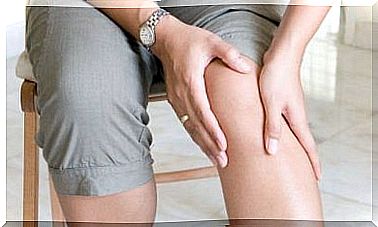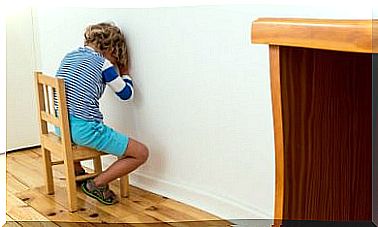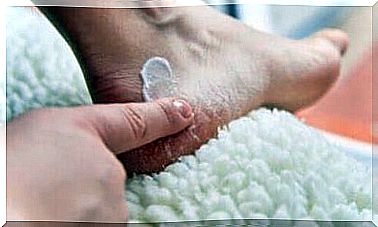Neutral Soap: What Is It For?
Neutral soap is a hypoallergenic product that has a pH similar to that of human skin. These properties make it very well tolerated by all skin types. Find out more in this article.
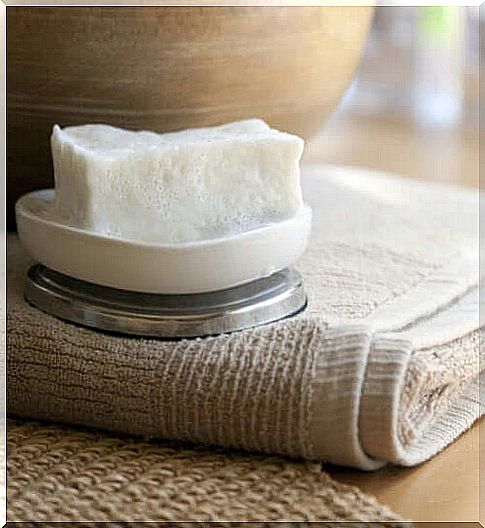
Neutral soap is a great alternative for those who have problems with normal commercial soaps or want to improve the appearance of their skin. This is a product that offers a lot of benefits and few contraindications.
Neutral soap has a pH very similar to that of human skin and, therefore, is recommended for sensitive skin. This type of soap does not contain colorants, fragrances or other components that are usually present in industrial type soaps.
It should be noted here that neutral soap is used for all skin types but also brings a lot of benefits to the scalp and hair in general. In any case, you have to be careful because all the soaps presented as neutral are not necessarily so.
What is neutral soap?
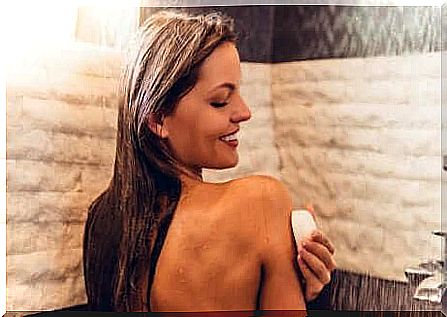
Neutral soap is a product that has a pH similar to that of human skin. The pH is a value that indicates the degree of acidity of a substance and is measured with numbers ranging from 0 to 14 degrees. The pH of our skin is 5.5 and that of neutral soaps as well, or at a value very close to the latter.
These types of soaps are usually made from natural oils or animal fats. They typically have a white or beige color. If they have a different tone, it is possible that a different component has been added to them, whether it is artisanal or industrial.
Soaps in this class are hypoallergenic, which means that there is a very low risk of allergies being triggered, although this cannot be ruled out 100%. Thanks to fatty acids, they have moisturizing and hygroscopic properties, which means that they absorb moisture from the environment and move it to the skin.
What is a neutral soap used for?
Neutral soap has many uses, but the most common of these is the general daily hygiene of the face and body. Thanks to its properties, this product is frequently used by those who have sensitive skin or a dermatological problem.
Soaps of this type are ideal for dry skin as well as oily and combination skin. In the case of dry skin, they provide moistening, especially if they are made with glycerin. In the case of oily skin, they help to remove the fat accumulated in the pores and remove the sebum which is present in the blackheads.
This type of soap is frequently used on skin that shows irritation. However, there are other uses which are unusual but which also work. Here they are :
- It is ideal for cleaning wounds before treating them.
- It contributes to the health of the scalp. In general, it leaves the hair clean and hydrated.
- This soap eliminates the smell of humidity in the cabinets. A piece of this soap in the cabinet helps eliminate bad odors.
- Cleaning of utensils. Such soap, with a little vinegar, helps to clean grease from cooking utensils.
- Maintenance of locks. Cleaning the locks with this soap keeps them in good condition.
- Lubrication of doors and windows. The soap eliminates annoying squeaks from damaged hinges.
When is it recommended to use it?
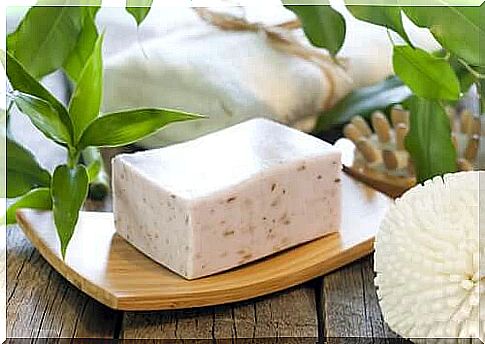
Many people are allergic or sensitive to common soap but are not sure. The easiest way to find out is to see if there is any type of irritation after using the product. If this is the case, you should stop using it for a few days and resume it a little later. If the irritation appears again, then we are allergic to this soap.
Other signs of allergy are itching after using soap, although there is no visible sign of irritation. Any type of burning or pain after washing with soap indicates the same. Soap should never cause bothersome symptoms after using it. If this happens, it means that the skin is not accepting the product well.
People with skin allergies or with overly sensitive skin react to common components of commercial soaps, and more particularly to triclosan, formaldehyde, parabens and / or sodium lauryl sulfate. When unwanted reactions appear, your best bet is to start using a neutral soap.
We also cannot rule out the fact that neutral soaps can also cause an undesirable reaction, especially on excessively sensitive skin. The best way to do this is to do a test first, putting a little soap on the forearm. If there is no reaction, you can use it without fear!


